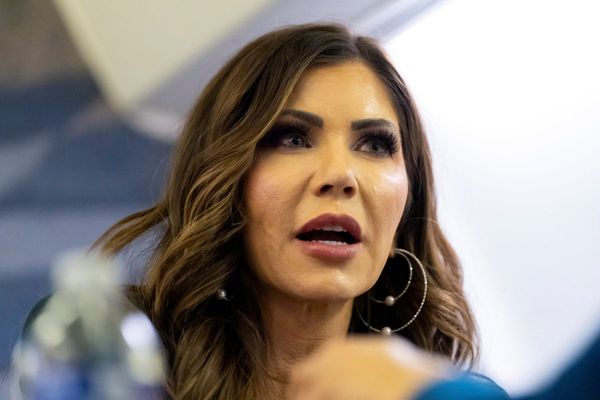
Russia’s president, Vladimir Putin, will meet the UN secretary general, António Guterres, on Thursday to discuss the Ukraine conflict, according to the Kremlin, in what would be the UN chief’s first trip to Russia in more than two years. The UN did not immediately confirm the planned meeting, which Ukraine strongly criticised, saying: “The UN secretary general declined Ukraine’s invitation to the first global peace summit in Switzerland. He did, however, accept the invitation to Kazan from war criminal Putin.”
The meeting was apparently scheduled to take place on the sidelines of the Brics summit in the central Russian city of Kazan. Guterres has previously criticised Moscow’s war on Ukraine but Ukraine’s foreign ministry said meeting Putin now “does not advance the cause of peace” and “damages the UN’s reputation”. Asked at a briefing in New York whether Guterres was intending to travel to Kazan later this week, a spokesperson said: “Announcements on his future travels will be later on down the line.”
A Russian missile attack on the southern city of Zaporizhzhia killed two people and injured 15 in the city centre while causing huge damage to civilian infrastructure, including a kindergarten and more than 30 residential buildings, said the regional governor, Ivan Fedorov, on Monday.
It would be a “dangerous and highly concerning development” if North Korea was sending troops to help Russia in Ukraine, the US said on Monday as South Korea and Britain warned of the high price Moscow would likely have to pay Pyongyang. Dan Sabbagh, the Guardian’s defence and security editor, examines the situation after South Korea’s National Intelligence Service (NIS) reported that 1,500 members of Pyongyang’s special forces had crossed the border to Vladivostok in Russia’s far east to begin training and some degree of participation in the war in Ukraine. “They represent the first element of what could be a 12,000-strong, four-brigade deployment,” he writes.
Regardless of troop commitments, Dan Sabbagh continues, “South Korean intelligence has touched on something more significant, at least for Russia. The NIS believes it has monitored 70 shipments of munitions – shells, missiles and anti-tank rockets – going from North Korea to Russia since August last year, transporting on its estimate 8m rounds of arms, including Russian 152mm and 122mm shells so crucial for Moscow’s destructive frontline assaults.”
South Korea has summoned the Russian ambassador to protest “in the strongest terms” about the reported dispatch of thousands of North Korean troops to help Russia in its war against Ukraine. The Guardian’s Justin McCurry reports from Tokyo that South Korea’s first vice-foreign minister, Kim Hong-kyun, told the Russian envoy, Georgy Zinoviev, that the participation of North Korean troops in the war violated UN resolutions and demanded their immediate withdrawal.
Britain is to lend Ukraine an additional £2.26bn to spend on weapons as part of a wider US$50bn (£38.5bn) loan programme expected to be confirmed by G7 members later this week, Dan Sabbagh writes. The loans will be repaid using interest generated by the US$300bn of frozen Russian assets held in the west. Rachel Reeves said: “The profits being made on those assets aren’t being kept for Russia to use in the future. They’re now being used to fund Ukraine.” The British chancellor made the announcement alongside the defence secretary, John Healey.
Dozens of US representatives from both the Democratic and Republican parties have urged the Biden administration to toughen sanctions on Russian oil shipments and questioned an exception issued to the world’s largest oilfield company, SLB, to operate in Russia. The 52 lawmakers said that since the invasion in February 2022, SLB has signed new contracts, recruited hundreds of staff, and imported nearly $18m in equipment into Russia. “This US-based company is keeping Vladimir Putin’s war machine well-oiled with financing for the barbaric invasion of Ukraine.”
The lawmakers said they were “cognizant of the arguments often cited that Russian oil provides a critical and irreplaceable segment of the global oil supply … However, allowing Russia to benefit from western technology and expertise only increases the resiliency of their oil and gas sector against western sanctions and prolongs its ability to finance its illegal offensive.” The US state department and SLB did not immediately respond to requests for comment from the Reuters news agency. The US treasury department said: “US firms are prevented from making any new investments in Russia and we plan to enforce all our sanctions against companies within our jurisdiction.”
Volodymyr Zelenskyy said on Monday the US was preparing an aid package worth US$800m for the production of Ukrainian drones. The Ukrainian president said the package was in addition to $400m for arms announced as the US defence secretary, Lloyd Austin, visited Kyiv. Austin said the US “will get Ukraine what it needs” to fight Russia. Zelenskyy, however, is seeking more, asking western allies to invite Ukraine to join Nato and let it use western-supplied longer-range missiles to strike military targets deep inside Russian territory. Ukraine is having difficulty holding back a ferocious Russian campaign along the eastern front, having to give up a series of towns, villages and hamlets. It faces a hard winter after Russia targeted its power grid.
Ukraine has called for foreign support to stop Russian strikes on its Black Sea ports after a series of fatal attacks, including on Odesa. Visiting Turkey, Andrii Sybiha, the Ukrainian foreign minister, said strikes in recent weeks had damaged four civilian vessels. Sybiha said he and the Turkish president, Recep Tayyip Erdoğan, had discussed safe navigation for shipping in the Black Sea.







